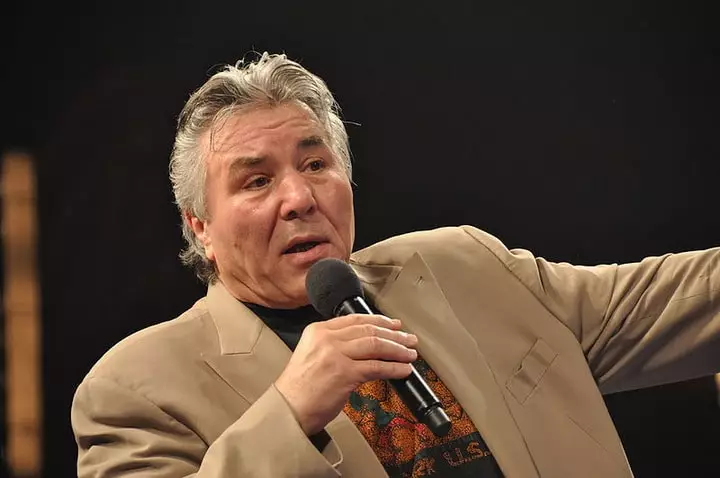In the annals of heavyweight boxing, few fighters capture the imagination like George Chuvalo, the Canadian boxer known for his extraordinary resilience. With a career that spanned over four decades and an astounding 93 fights without ever hitting the canvas, Chuvalo has often been celebrated for his formidable chin. However, as he grapples with dementia in the twilight of his life, a recent interview sheds light not just on his career, but also on Mel Turnbow, a somewhat obscure heavyweight whose punching power left an indelible impression even on the legendary Chuvalo.
In his reflections, Chuvalo recalled the most powerful punchers he ever faced, naming titans like Joe Frazier and George Foreman—figures well-known to boxing aficionados. What stands out, however, is Chuvalo’s mention of Turnbow, a fighter with a comparatively modest record of 9-13 (2). This decision raises questions about the nature of talent and recognition in boxing. How often do we overlook the fighters who may not have amassed remarkable records but possess raw talent that can challenge even the greatest?
The name Mel Turnbow may not resonate with many contemporary boxing fans. A heavyweight from Paterson, New Jersey, Turnbow was described as “too passive” and lacking the killer instinct required to succeed at the highest levels of the sport. Despite his struggles, he found himself in the ring with some of the most notable names in boxing history, having faced legends such as Muhammad Ali during their sparring sessions and being a sparring partner for Floyd Patterson, among others.
One notable incident during his career illustrates Turnbow’s latent talent. In a shocking bout against the powerful Cleveland Williams in March 1966, Turnbow managed to knock Williams down twice. Yet, his tendency to showcase restraint saw him lose the fight on points, leaving many to speculate about what might have been had he possessed a more aggressive strategy. Such moments beg the question: how many boxers have emerged with immense potential, only to falter when faced with the ruthless nature of professional boxing?
Despite his uneven record, Turnbow’s punching ability received notable acclaim. According to Chuvalo’s recounting, hitting the heavyweight was akin to being struck by a freight train. Although Turnbow only recorded two knockouts in his professional career, Chuvalo’s vivid description of their encounter serves as a testament to the fighter’s raw physical power. “I didn’t wobble, but it was a good right hand to the temple,” Chuvalo stated, illustrating the impact Turnbow had despite being stopped in their match in the seventh round.
Turnbow stood at 6’3″ and weighed around 205 pounds at the start of his career. His impressive reach of 85 inches made him a formidable opponent. However, it’s clear from his trajectory that, despite his physical gifts, he failed to maximize his potential in the ring, partly due to his reluctance to embrace the more ruthless aspects of boxing.
Turnbow’s role in the boxing scene extended beyond just fighting; he served as an invaluable sparring partner for elite fighters, providing them with quality preparation before major bouts. His experiences with iconic figures such as Ali and Chuvalo suggested that he could indeed hold his own against top-tier talent, even if full-scale victories eluded him.
The reality remains that many fighters like Turnbow exist in the shadows of greatness, shaping the careers of champions while often receiving little recognition for their contributions. While Chuvalo’s accolades cannot be overshadowed, the respect he held for Turnbow portrays a more layered narrative about boxing prowess, skill, and the often-overlooked figures behind the champions.
Mel Turnbow may have passed away in 2013, but his legacy endures through the stories of those who faced him in the ring. It’s particularly poignant that a fighter with apparent limitations would still leave a lasting impression on one of boxing’s toughest competitors.
His life invites reflections on the nature of talent in sports—how factors such as mindset, strategy, and even timing can determine a fighter’s journey. As boxing continues to evolve, it brings to light the importance of examination and appreciation for all figures within the sport, especially those whose contributions may have been overshadowed. The legacy of Mel Turnbow reminds us that within every punch, there lies a story worth telling—one that transcends statistics and resonates with the heart of boxing itself.

